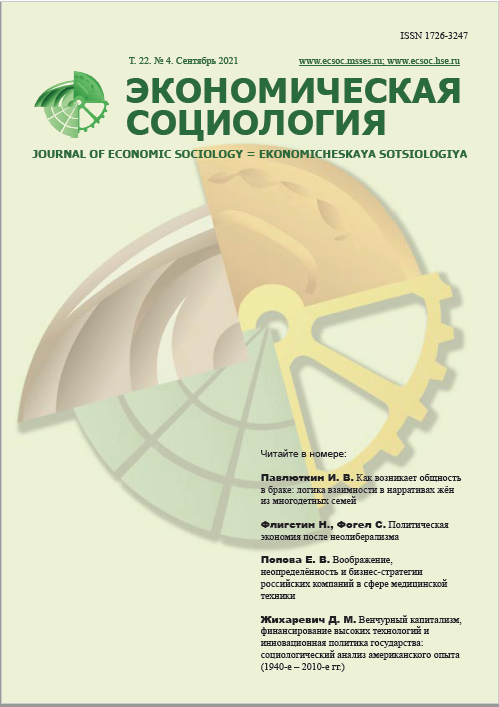How the Sense of Community Arises in Marriage: The Logic of Mutuality in the Narratives of Women from Large Families
Abstract
In the proposed article, based on in-depth interviews with women in large families, the author discusses the following hypothesis: in families where, as children are born, conjugality does not give way to household and parenthood, a sense of community in marriage is enhanced. This arises in families where a man, as children are born, becomes more involved in relations with his wife and children, and the relations are developed in the logic of mutuality. Using the results of 22 in-depth interviews with women in large families from Moscow, Arkhangelsk, and Vladimir, the author objectifies this logic by the category of the "mutual sacrifice of the spouse," which indicates the wife's confidence in unmitigated communion and support from her husband. In the social sciences, this category is similar to the concept of the reciprocal gift. Gift commitment theory emphasizes the fundamental distinction between the material and perceived spiritual sides of the exchange, which helps to explain why, despite the factual workload and vulnerability of the mother, which grows as the children are born, she perceives married life in terms of friendship with her husband and community in the family. In conclusion, the author proposes that the logic of mutuality in marriage can become a fruitful source for reflection on the division of labor between the sexes, as opposed to the logics of justice and independence.













